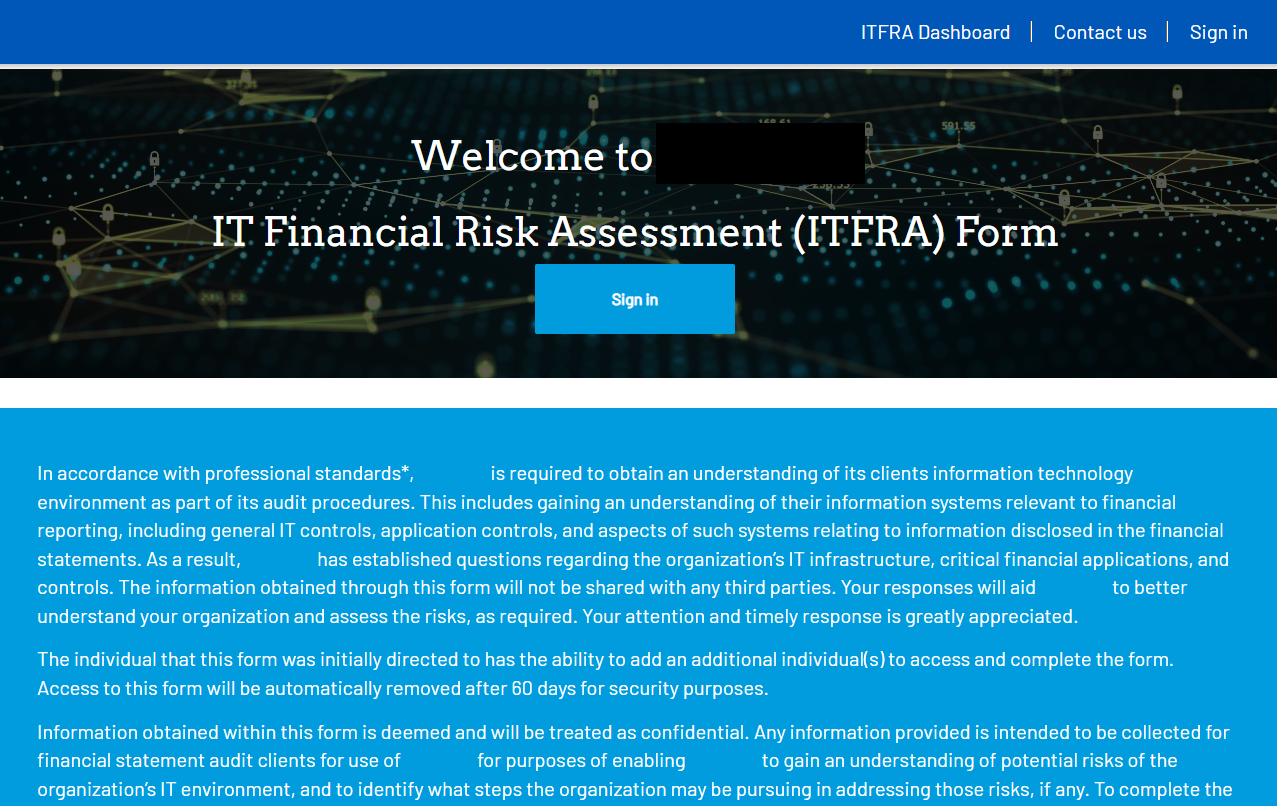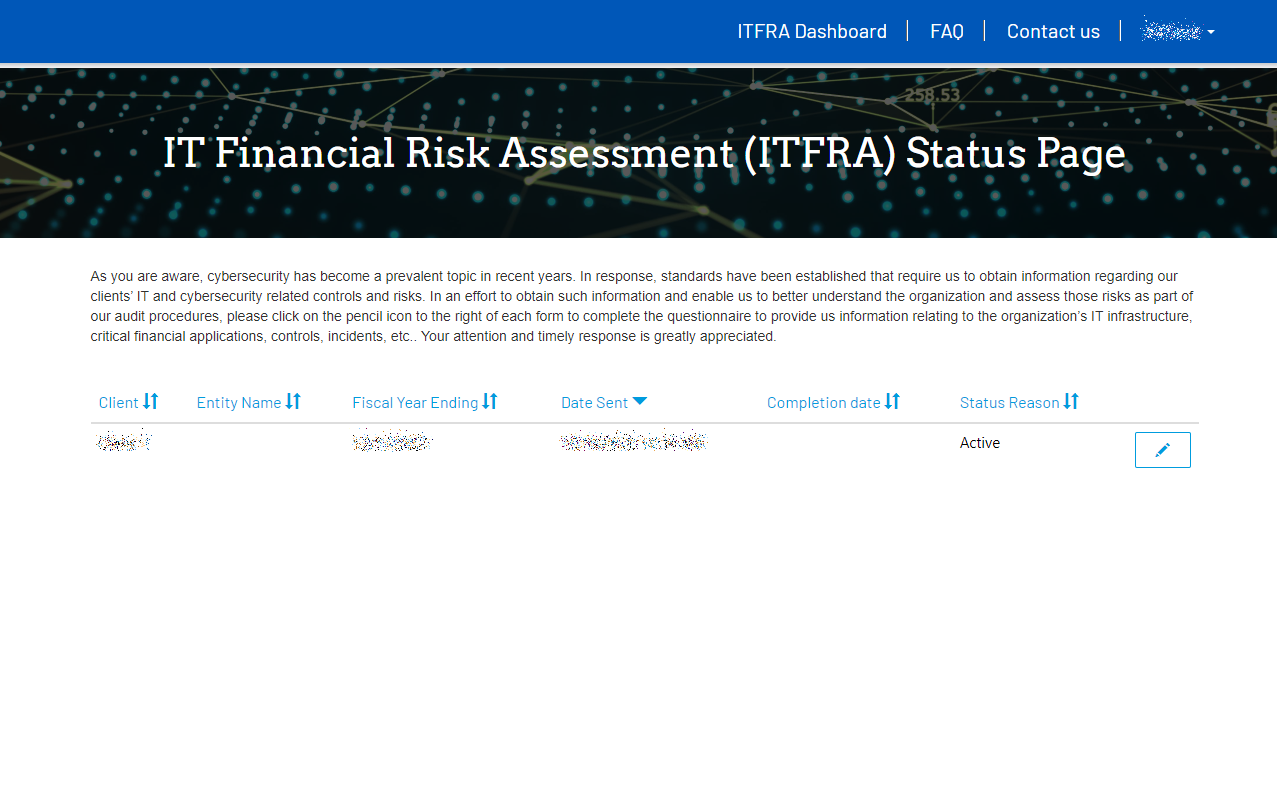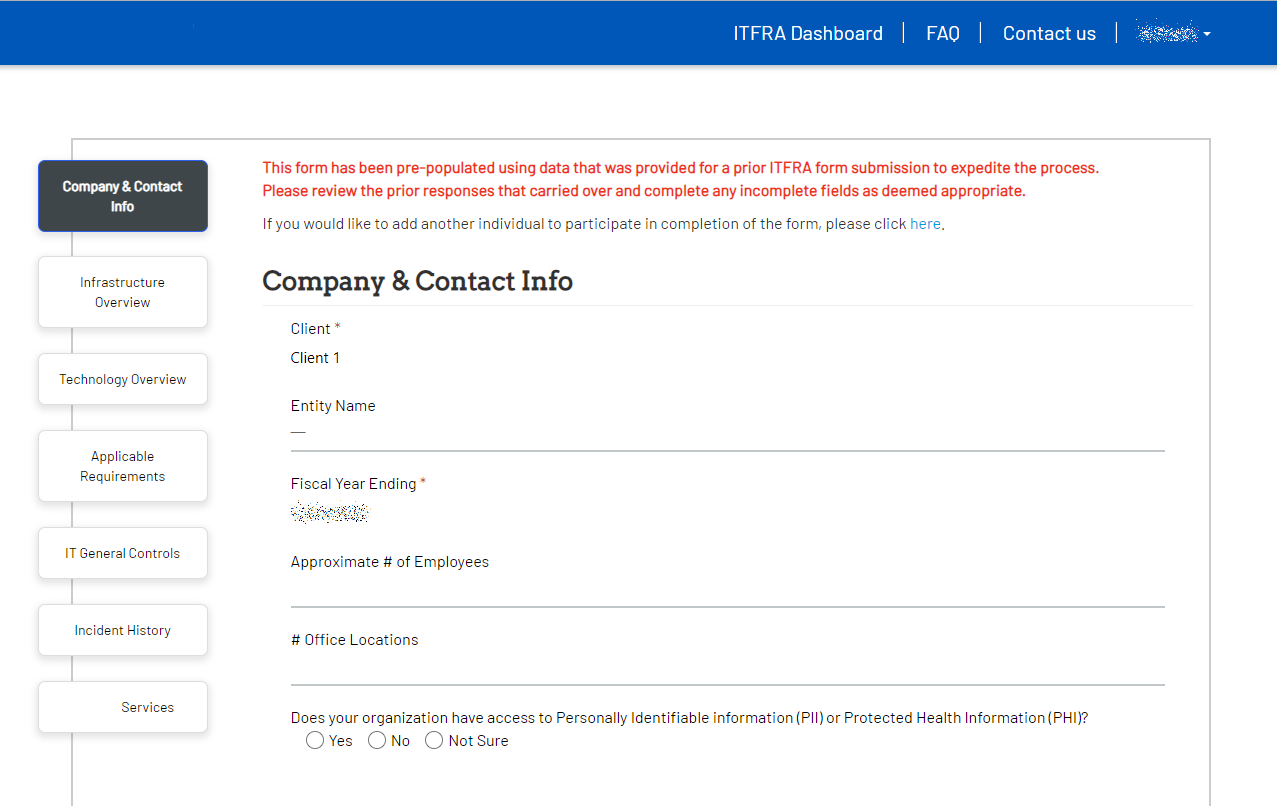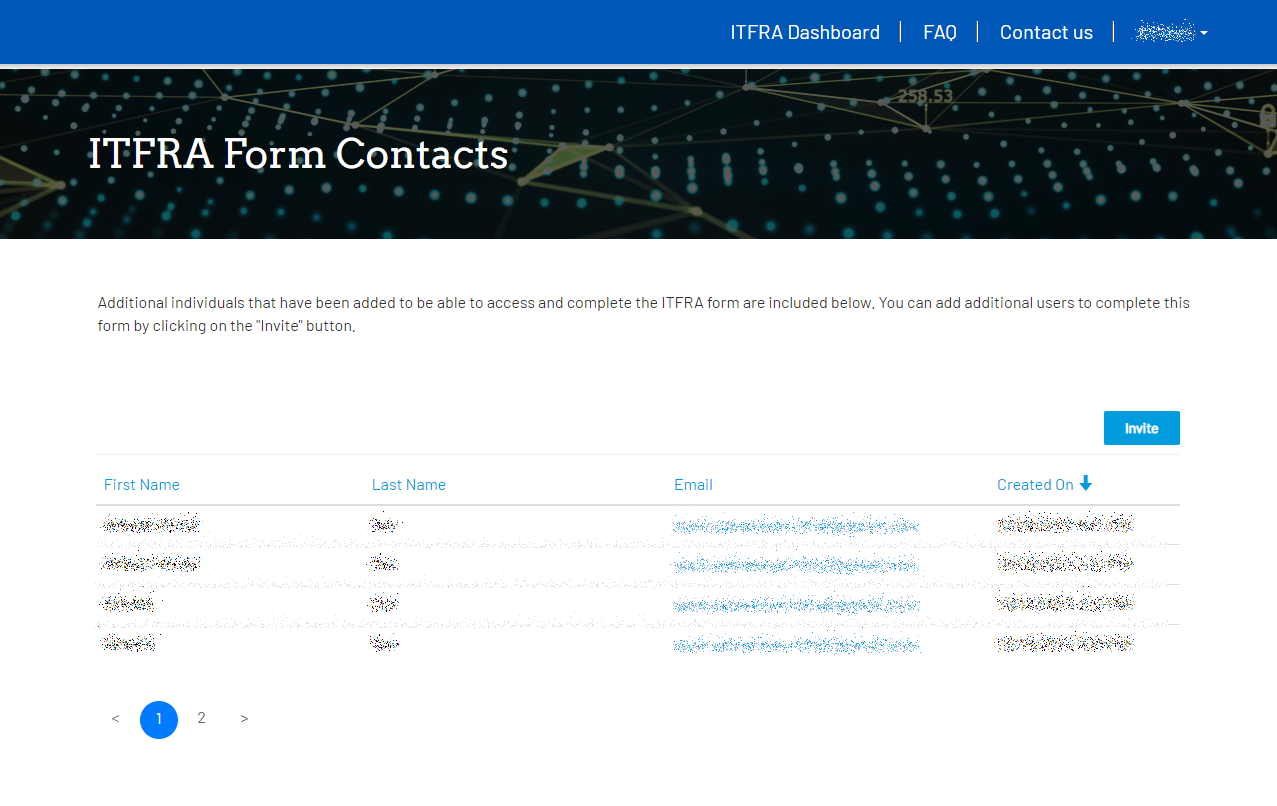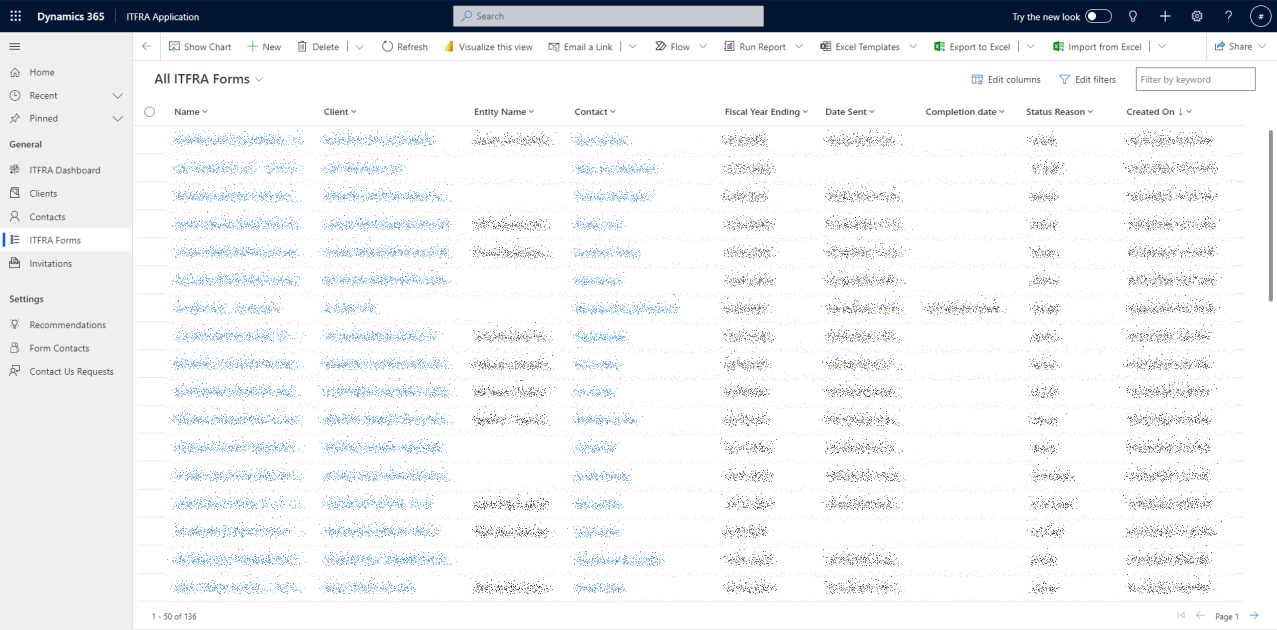IT Financial Risk Assessment Application


Geography
USA
Industry
Finance
Size
100+ employees
Implementation
2023
Client’s Request

A US-based tax consulting and audit services company reached out to us for assistance. They needed to assess their client's IT setup as part of their audit process. It involved understanding the client's information systems related to financial reporting, including IT controls, application controls, and systems linked to financial statement disclosures. Consequently, the company formulated queries about the client's IT infrastructure, essential financial software, and control mechanisms.
Preparation

After carefully analyzing the client's requests, we decided to implement the requested functionality using Power Pages for the company client's questionnaire, Dynamics 365 as a CRM solution for internal usage and analytics, and Power Automate as the selected solution for business process automation.
The client already used Microsoft services for communication, document storage, and more. Therefore, opting for another Microsoft solution was a logical decision. On our side, a team of qualified professionals, including a Project Manager, a Solution Architect, a Technical Consultant, a UX/UI Designer, and Developers, was involved in this project. We outlined a comprehensive project plan, and it was estimated to be completed within three months.
The project's initial phase included the following components: Power Apps (Model-Driven App), Power Pages, and Power Automate.
Realization
Client requests were implemented in this project using Agile and Scrum methods. We fulfilled all the client's requirements according to the initial plan in 7 sprints, each lasting 14 days.
A Power Pages Portal was developed, allowing Company clients to access the questionnaire and answer questions. Portal users also have the option to invite additional contacts to assist or complete the questionnaire. At the Client's request, access to this questionnaire is automatically revoked after 60 days for security purposes.
In case of any questions, portal users were given the opportunity to access the "Contact Us" form to resolve any potential issues.

To cover all Auditor use cases, a Model-Driven App was developed. This app allows users to view the completed questionnaires and track user progress in filling out those forms and provides the ability to provide feedback after the forms are filled. Additionally, the automated system offers recommendations based on preset rules depending on the answers selected.
Visualization
What The Customer Received


Summary
In conclusion, integrating a meticulously crafted questionnaire into audit procedures has proven instrumental in enhancing the effectiveness and thoroughness of IT audits within the company. This approach facilitates efficient data collection by providing a structured method for gathering essential client information about their IT environment. It yields focused and comprehensive insights, empowering auditors to achieve a detailed understanding of systems, processes, and controls. The incorporation of a well-designed questionnaire proves beneficial for both the audit team and clients alike.
